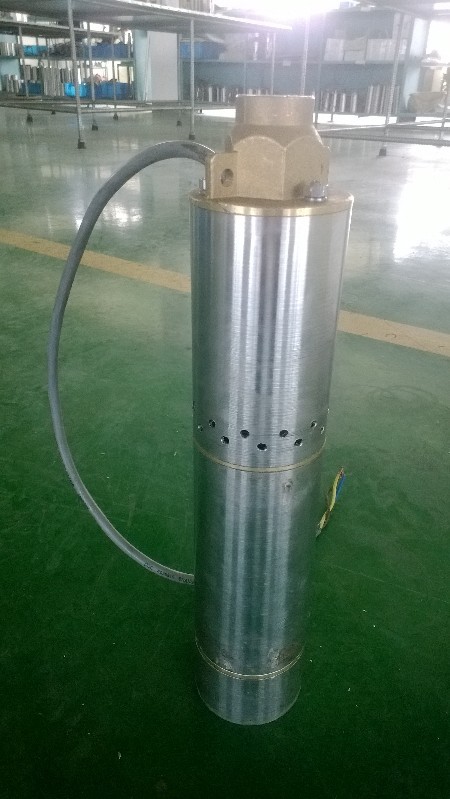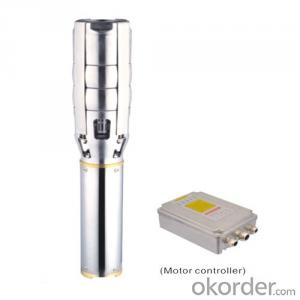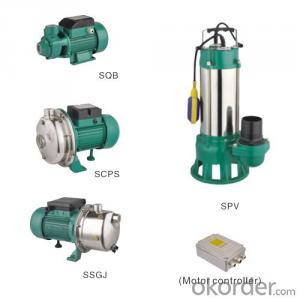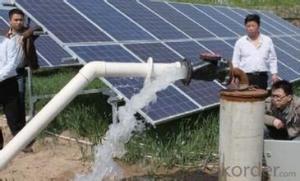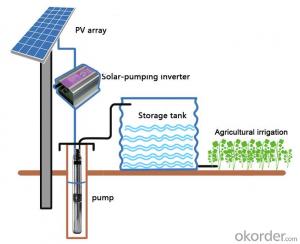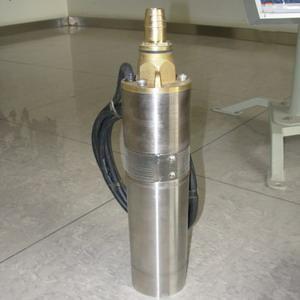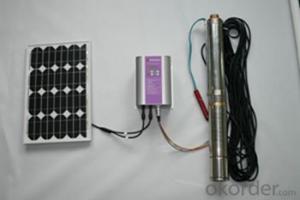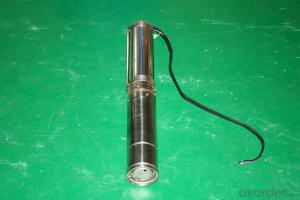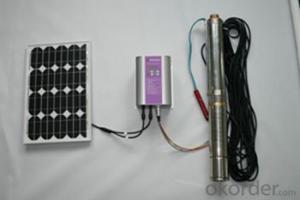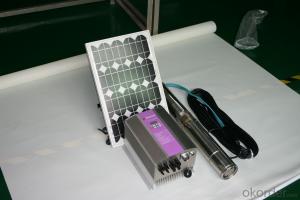Submersible Solar Water Pump with Helical Screw
- Loading Port:
- Shanghai
- Payment Terms:
- TT OR LC
- Min Order Qty:
- -
- Supply Capability:
- 300 set/month
OKorder Service Pledge
Quality Product, Order Online Tracking, Timely Delivery
OKorder Financial Service
Credit Rating, Credit Services, Credit Purchasing
You Might Also Like
how is the rotor made:
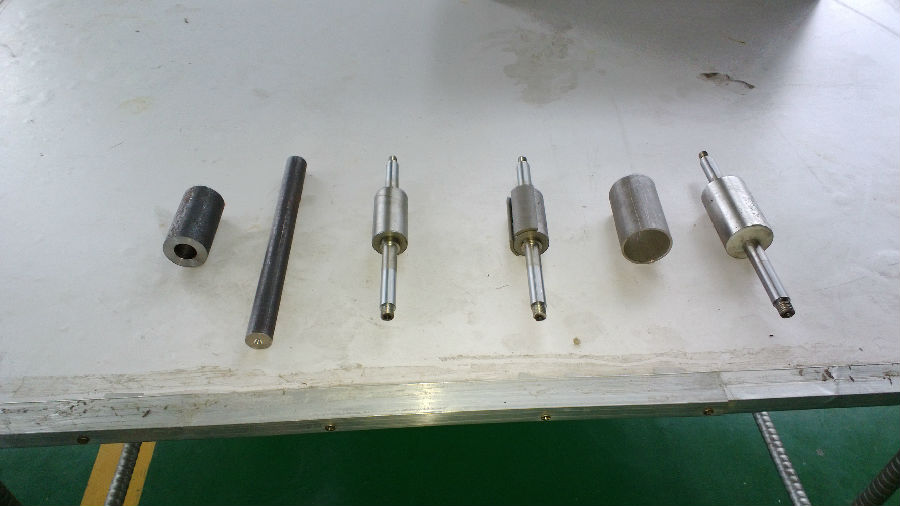
how is the motor made:
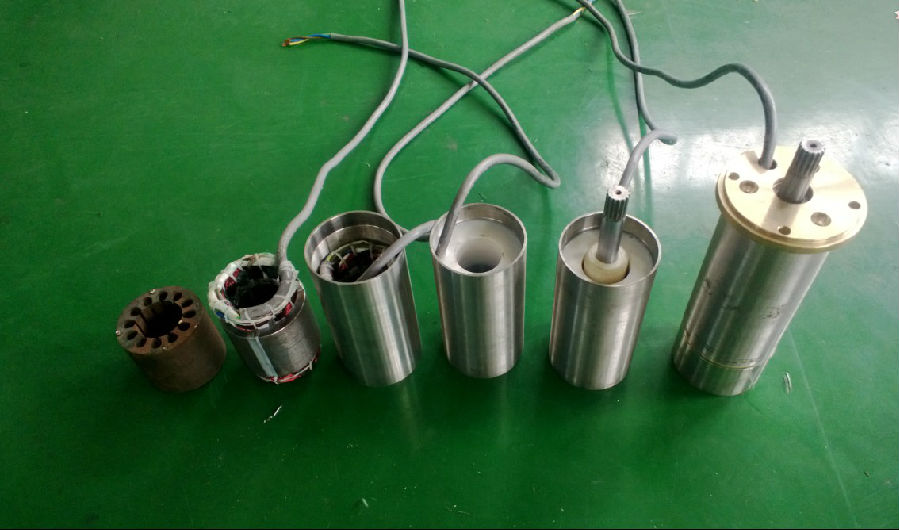
the pump :
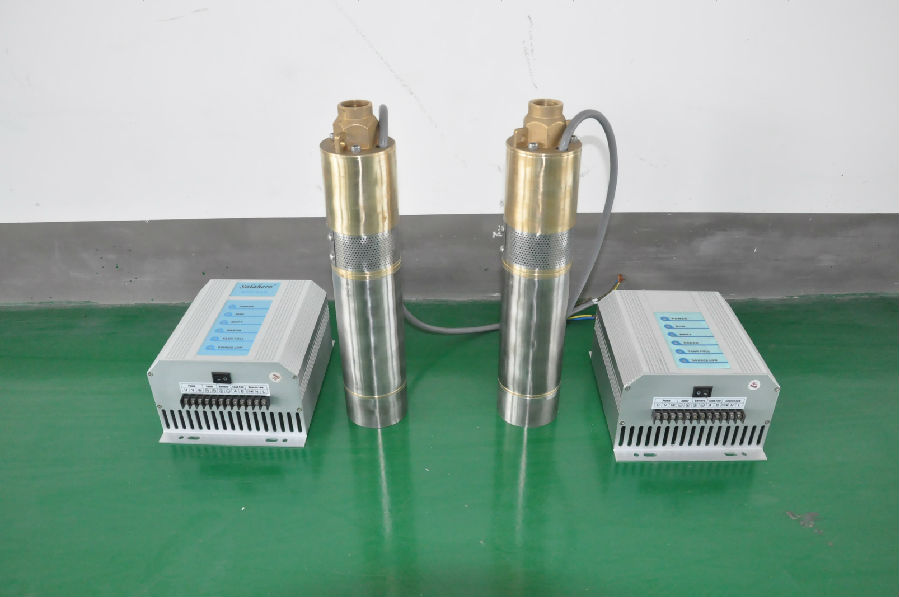
controller terminal connection:
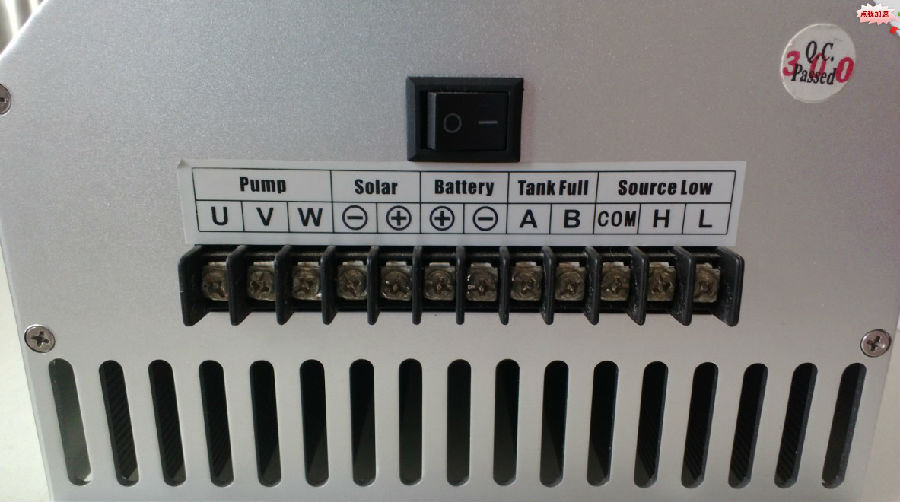
The permanent magnet:
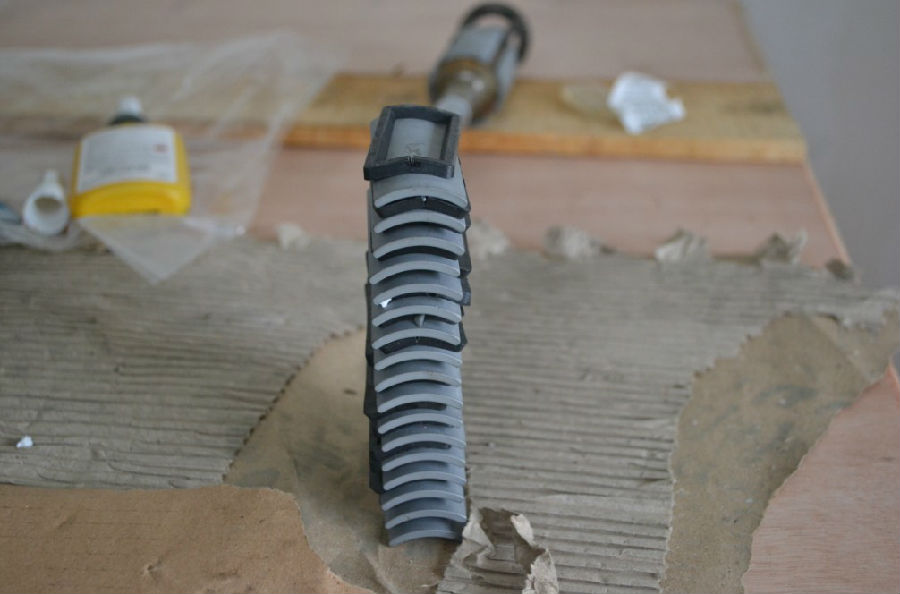
the helical screw:
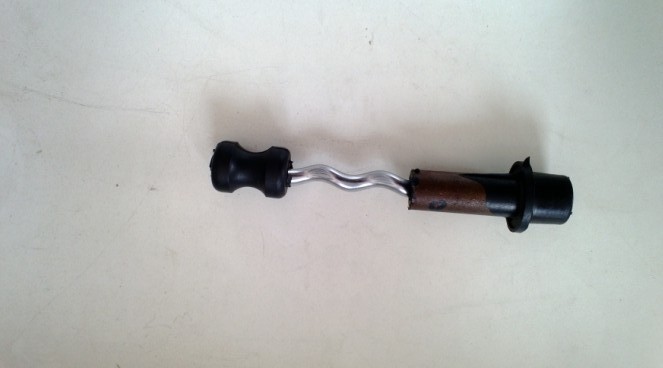
controller box:
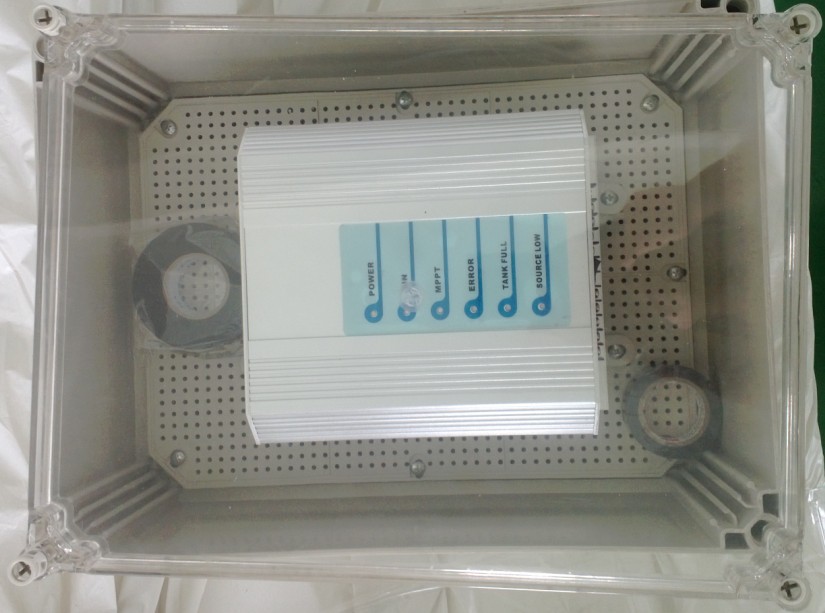
the senors:
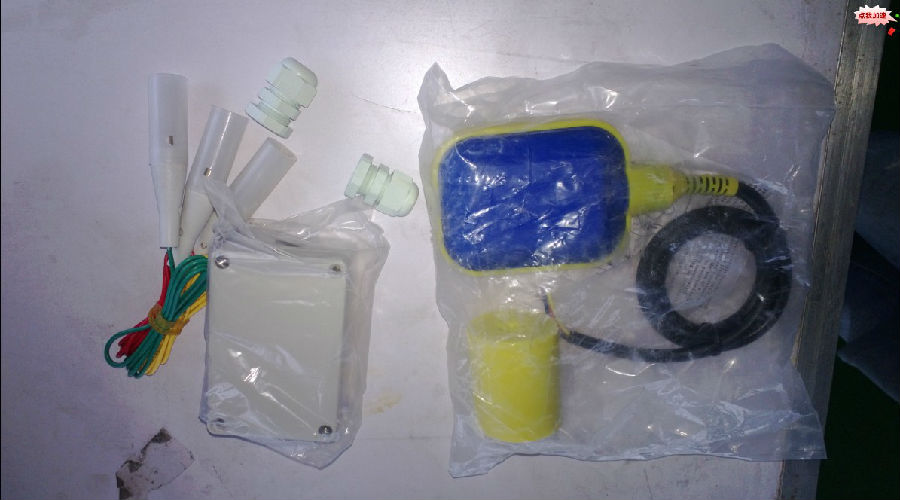
the test:
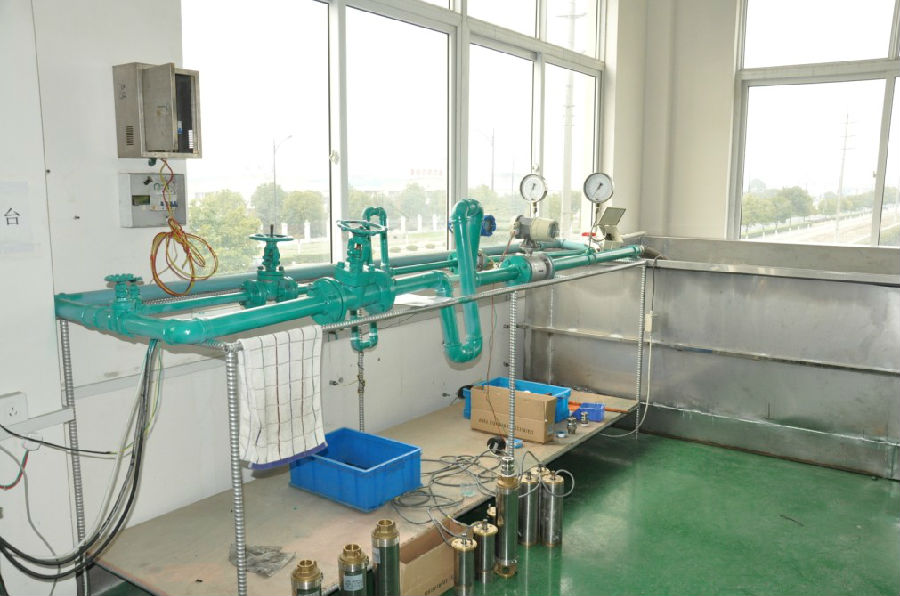
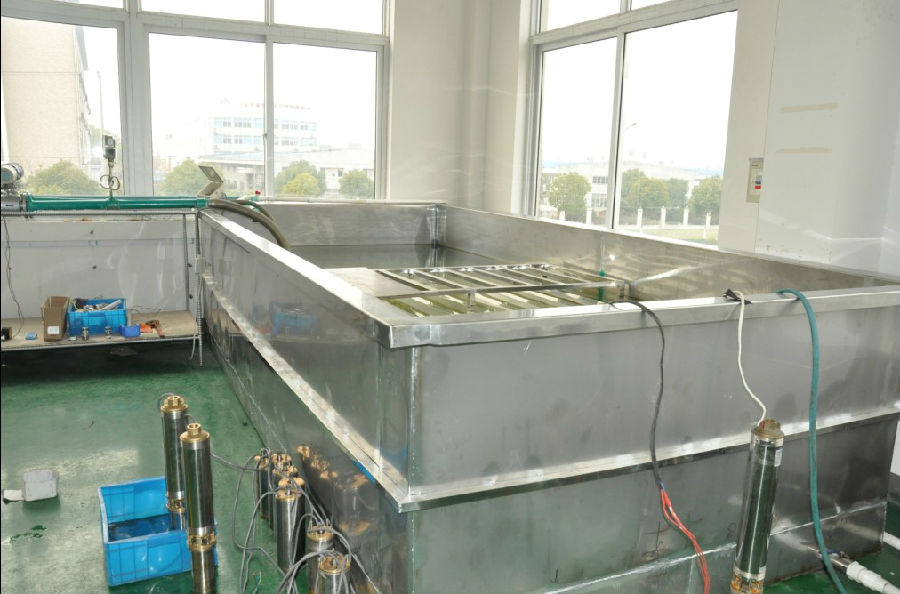
the application:
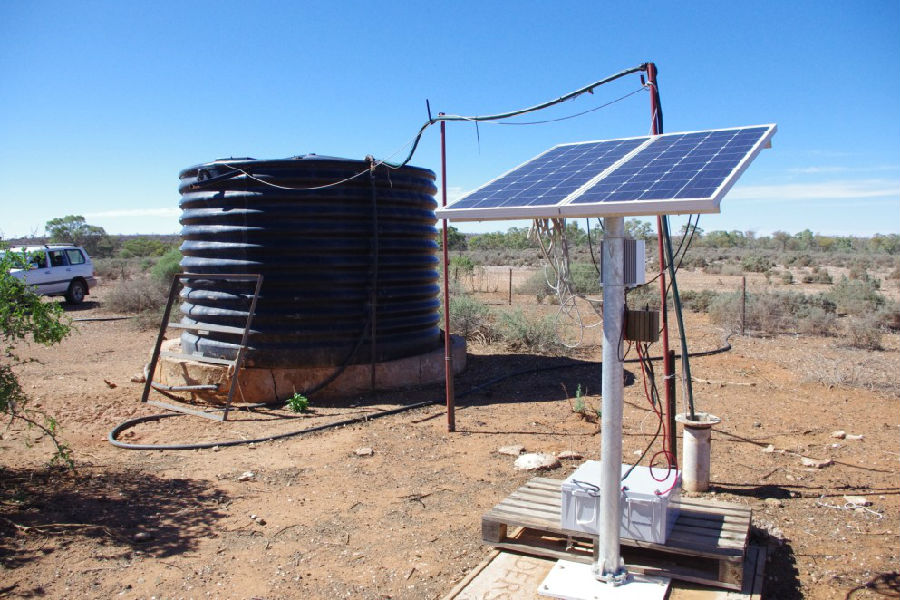
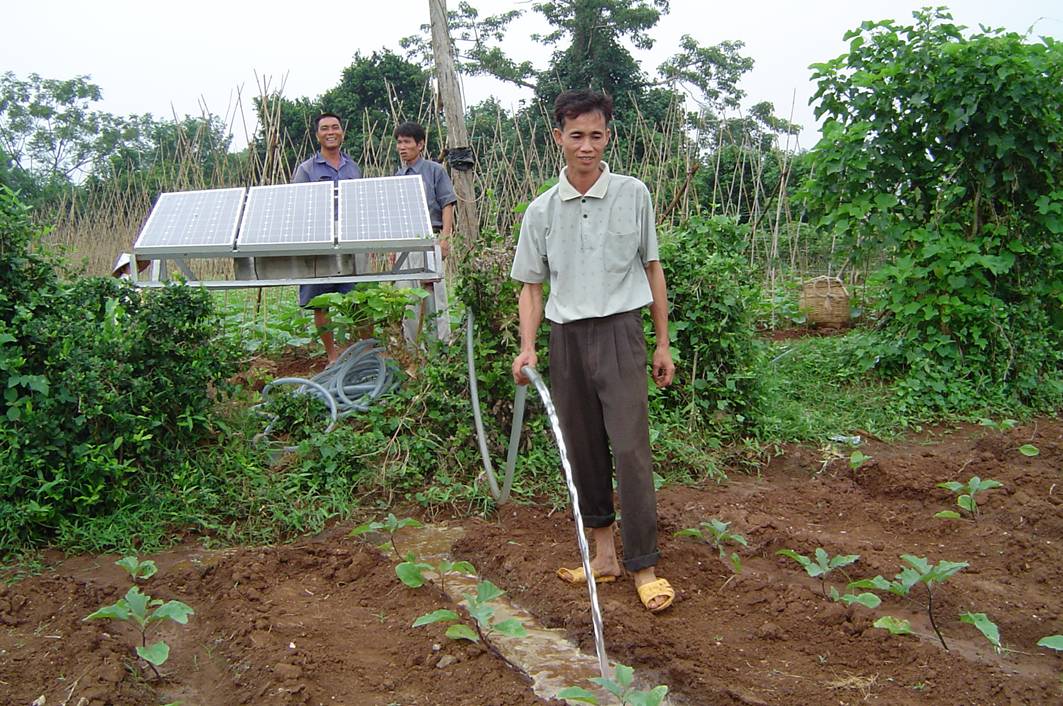
the package:
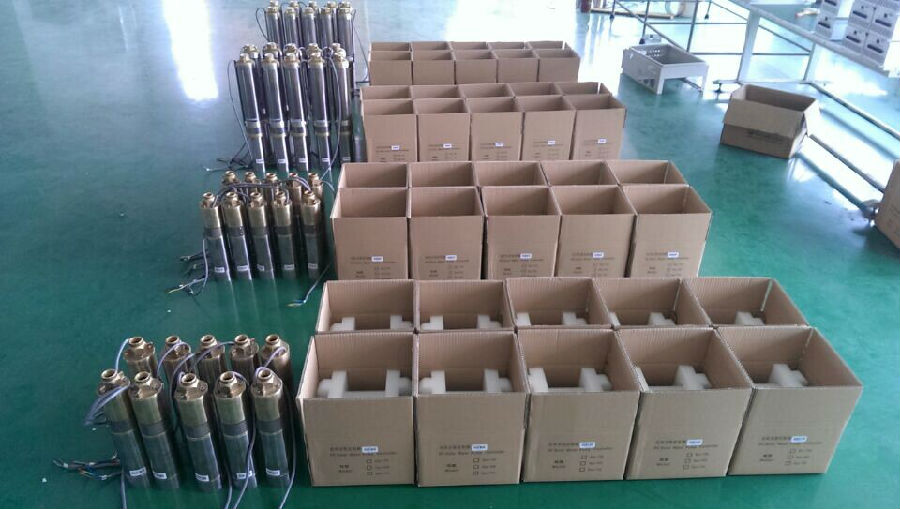
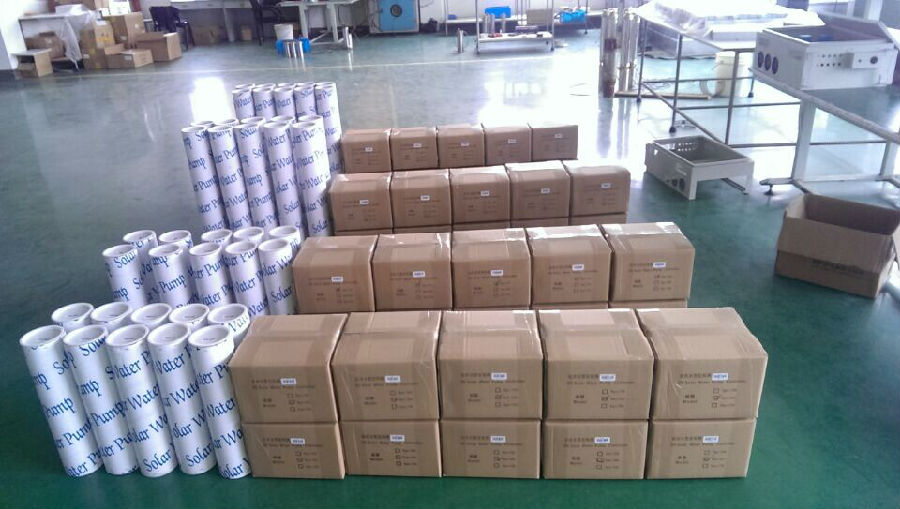
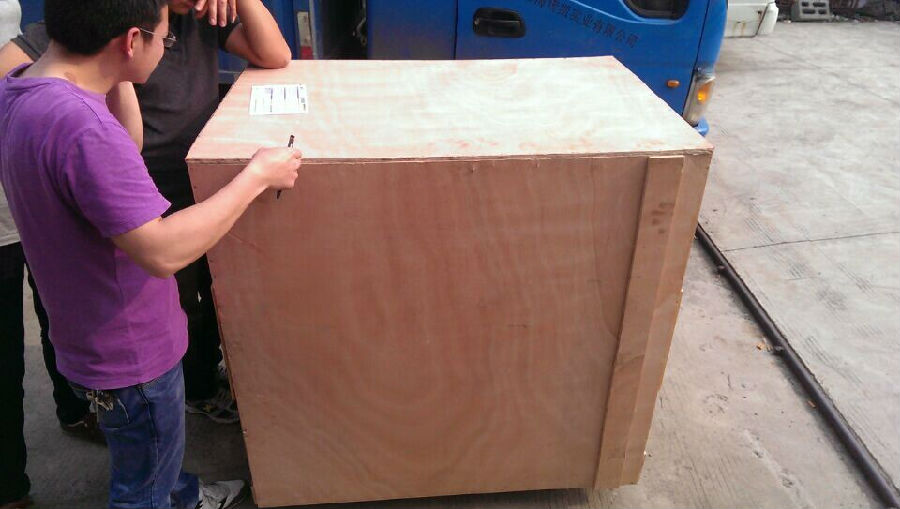
- Q: Can a solar pump be used in areas with limited access to skilled labor for installation?
- Yes, a solar pump can be used in areas with limited access to skilled labor for installation. Solar pumps are designed to be user-friendly and often come with detailed installation instructions. Additionally, they require minimal maintenance and can be easily operated by individuals with basic technical knowledge. This makes them a suitable option for areas with limited skilled labor, as they can be installed and managed by local communities or individuals with minimal training.
- Q: Can a solar pump be used in areas with freezing temperatures?
- Yes, a solar pump can be used in areas with freezing temperatures. However, precautions need to be taken to prevent damage to the pump and its components. This can be achieved by using appropriate insulation, heat tracing, or placing the pump in a heated enclosure. Additionally, the pump should be designed to handle freezing conditions and the water source should be properly protected to prevent freezing.
- Q: What is the expected lifespan of the inverter used in a solar pump system?
- The expected lifespan of an inverter used in a solar pump system can vary depending on several factors such as the quality of the inverter, the maintenance practices, and the operating conditions. However, on average, a well-maintained and good-quality inverter can have a lifespan ranging from 10 to 15 years.
- Q: Do solar pumps require batteries for storage?
- Solar pumps do not need batteries for storage. They are specifically designed to function by directly utilizing the energy produced by the sun. When the sun is present, the solar panels convert sunlight into electrical energy, which powers the pump. This enables the pump to operate in real-time, extracting water directly from the source and delivering it to the desired location, such as a reservoir or irrigation system. Because solar pumps do not depend on batteries for storage, they are generally more cost-effective and require less maintenance compared to pumps that rely on batteries. However, it is important to mention that certain solar pump systems may incorporate a small battery for short-term energy storage. This ensures uninterrupted operation during periods of low sunlight or at night.
- Q: On the issue of pumps and solar panels
- But the solar panels, then the general pump motor are AC, solar energy is the first DC output so the first to have an inverter, the other in order to ensure that no sun, such as night or cloudy can be used and to ensure that the inverter circuit voltage and current stability are by the solar panels
- Q: Can a solar pump be used in areas with limited access to spare parts?
- Yes, a solar pump can be used in areas with limited access to spare parts. Solar pumps are designed with simplicity in mind and have fewer moving parts compared to traditional pumps. They require minimal maintenance and can operate for many years without the need for replacement parts. Additionally, solar pumps are often accompanied by warranties and technical support from manufacturers, which can help address any issues that may arise in areas with limited access to spare parts.
- Q: Can a solar pump be used for irrigation in sandy or arid areas?
- Certainly! Solar pumps are suitable for irrigation in sandy or arid regions, providing a sustainable and cost-effective alternative to areas with limited access to electricity or unreliable power supply. By utilizing solar energy to power the pump, the need for fuel or electricity is eliminated. In areas where water resources are scarce, such as sandy or arid regions, solar pumps are an excellent choice. They efficiently extract water from wells, boreholes, or other water sources and transport it to the fields for irrigation. These pumps can be designed to function even in low light conditions, guaranteeing a constant water supply for crops. Furthermore, solar pumps can be equipped with useful features such as water level sensors and automatic control systems. These features optimize water usage and prevent excessive irrigation. This ensures efficient water utilization and reduces the risk of water wastage, which is particularly important in areas where water conservation is vital. Moreover, solar pumps require minimal maintenance and have a long lifespan. This makes them suitable for remote locations where regular maintenance may be challenging. Additionally, solar pumps have minimal environmental impact, as they do not emit any greenhouse gases or create noise pollution. In conclusion, solar pumps provide a sustainable and dependable solution for irrigation in sandy or arid areas. They assist farmers in enhancing crop yields and ensuring efficient utilization of water resources.
- Q: Can solar pumps be used to create a water feature in a garden?
- Yes, solar pumps can be used to create a water feature in a garden. Solar pumps are designed to operate using solar energy, which means they can function without the need for electricity from the grid. This makes them an excellent choice for powering water fountains, ponds, or other water features in a garden. They are environmentally friendly, cost-effective, and provide a sustainable solution for adding a water feature to enhance the aesthetics of a garden.
- Q: How does a solar pump compare to a diesel-powered pump?
- A solar pump and a diesel-powered pump are two different types of pumps that have their own set of advantages and disadvantages. In terms of cost, a solar pump has a higher upfront cost as it requires the installation of solar panels and batteries to store the energy. On the other hand, a diesel-powered pump has a lower upfront cost but incurs ongoing expenses for fuel and maintenance. Over time, a solar pump can be more cost-effective as it relies on renewable energy sources and does not require continuous fuel purchases. In terms of environmental impact, a solar pump is much more environmentally friendly as it uses clean solar energy and produces zero emissions. It contributes to reducing carbon footprint, air pollution, and dependency on fossil fuels. Conversely, a diesel-powered pump emits harmful greenhouse gases and pollutants, contributing to air pollution and global warming. In terms of reliability, a solar pump can be less reliable in areas with inconsistent sunlight or during cloudy days. However, advancements in technology have made solar pumps more efficient and capable of storing excess energy for use during low-light periods. On the other hand, a diesel-powered pump is highly reliable as it can operate continuously as long as there is fuel available. Maintenance and operational costs also differ between the two types of pumps. A solar pump generally requires less maintenance as it has fewer moving parts compared to a diesel-powered pump. However, if there is a need for repairs or replacements, it can be more expensive due to the specialized nature of solar components. Diesel-powered pumps require regular maintenance, such as oil changes and filter replacements, and ongoing fuel costs. Lastly, a solar pump can be more suitable for remote areas or locations without access to electricity grids, as it operates independently using solar energy. In contrast, a diesel-powered pump requires a constant supply of fuel, which may be challenging or costly in remote locations. Ultimately, the choice between a solar pump and a diesel-powered pump depends on factors such as upfront costs, environmental considerations, reliability, maintenance requirements, and availability of electricity or fuel. Each option has its own advantages and limitations, and the decision should be based on the specific needs and constraints of the situation.
- Q: Can a solar pump be used for both residential and commercial purposes?
- Yes, a solar pump can be used for both residential and commercial purposes. Solar pumps are versatile and can be used to meet various water pumping needs, including irrigation, livestock watering, and domestic water supply, making them suitable for both residential and commercial applications. They are environmentally friendly, cost-effective, and can help reduce dependence on traditional energy sources.
Send your message to us
Submersible Solar Water Pump with Helical Screw
- Loading Port:
- Shanghai
- Payment Terms:
- TT OR LC
- Min Order Qty:
- -
- Supply Capability:
- 300 set/month
OKorder Service Pledge
Quality Product, Order Online Tracking, Timely Delivery
OKorder Financial Service
Credit Rating, Credit Services, Credit Purchasing
Similar products
Hot products
Hot Searches
Related keywords

